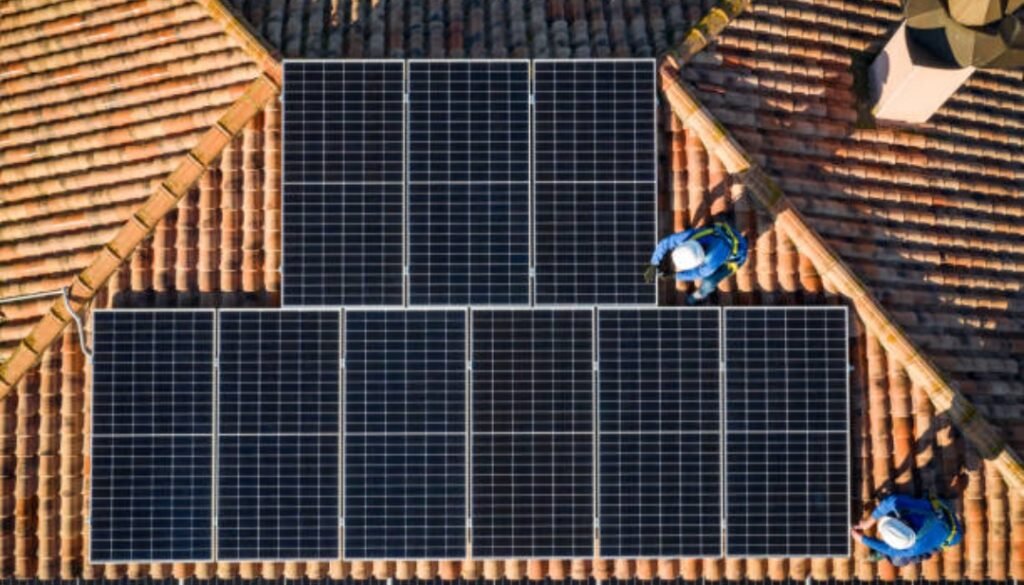When you think about the biggest monthly expenses in your household, energy bills are probably near the top of the list. Whether it’s heating in winter, running the air conditioning through a hot summer, or just keeping the lights and appliances running, electricity is something none of us can live without. But what if you could dramatically cut down on those bills and do something good for the environment at the same time? That’s where residential solar comes in.
Solar energy might sound technical or even intimidating at first, but at its core, it’s about capturing the free, abundant power of the sun and putting it to work for your home. With the right system design, solar isn’t just about saving money today it’s about setting yourself up for smarter, long-term energy independence.
Why System Design Matters More Than You Think
Installing solar panels isn’t just about sticking them on a roof and hoping for the best. The design of your solar system plays a huge role in how much energy it generates and how quickly you start to see savings.
Think of it like building a house. You wouldn’t just throw up some walls and hope it turns into a cozy home; you’d carefully plan the layout, materials, and structure. Solar works the same way. Factors like roof angle, panel orientation, local climate, and the types of appliances you use every day all affect how your system should be set up.
For example, a family with a pool and electric heating will have very different energy needs compared to someone in an apartment with minimal appliances. Expert system design makes sure your solar solution isn’t “one-size-fits-all” but tailored specifically to your household.
Everyday Benefits You Can Actually Feel
One of the biggest advantages of residential solar is how quickly the savings add up in real life. Here are a few concrete examples:
- Families with kids at home all day – Between online classes, video games, and endless snacks from the fridge, energy use is constant. Solar can offset much of that load, turning the sun into a silent financial helper.
- Small business owners running home offices – From printers to air conditioners, working from home racks up electricity costs. Solar cuts into those expenses, giving you more room in your monthly budget.
- Retirees spending more time at home – Instead of worrying about increasing power prices on a fixed income, solar provides predictable savings month after month.
These benefits aren’t abstract. They’re about making everyday life a little easier and freeing up money for things you actually enjoy—like family outings, home upgrades, or just the peace of mind of a lower utility bill.
Solar as a Smarter Long-Term Investment
Another way to look at solar is as an investment in your property. Just like renovating a kitchen or adding a deck, a properly designed solar system can increase your home’s value. Buyers see it as an attractive feature because it means ongoing savings.
And unlike most household expenses that just disappear after you pay them, solar has a “payback period.” This is the time it takes for your energy savings to cover the initial installation cost. Once you’ve crossed that threshold, the power your system generates is essentially free. Many households hit this point faster than they expect, especially with government rebates and incentives helping reduce upfront costs.
Making Solar Work for Your Lifestyle
The beauty of modern solar systems is how customizable they are. Maybe you’re a young family juggling childcare costs, or maybe you’re self-employed and trying to balance business expenses with household needs. The right solar design considers all of that.
For instance, someone who’s navigating a self employed home mortgage might already be thinking about long-term financial strategies. Pairing solar with smart home ownership decisions ensures you’re not just paying off a house—you’re building a lifestyle where your biggest recurring bills shrink over time.
And it’s not only about personal finance. Solar contributes to a bigger picture, reducing reliance on fossil fuels and supporting clean, renewable energy. It’s a small step at the household level that ties into a global shift toward sustainability—something that matters not just today, but for future generations.
The Bigger Picture: Cleaner, Smarter, and More Independent
Residential solar is more than a trend—it’s part of a worldwide movement toward smarter energy use. Every home that makes the switch becomes less dependent on traditional electricity grids, which are often powered by nonrenewable sources. It’s about moving toward a cleaner, more self-sufficient future.
Just like how renewable energy has become a cornerstone of global sustainability efforts, residential solar represents the individual’s role in that journey. And when you combine that with the immediate personal benefits—lower bills, increased home value, and long-term savings—the choice becomes even clearer.
Final Thoughts
Switching to solar isn’t just a financial decision—it’s a lifestyle upgrade. With expert system design, your solar panels work in harmony with your home, your family’s habits, and your future plans. You’re not just cutting down on bills; you’re building security, sustainability, and independence.
So whether you’re a busy parent, a retiree, or someone mapping out financial stability for the long haul, residential solar offers a clear path to a brighter, smarter tomorrow.

